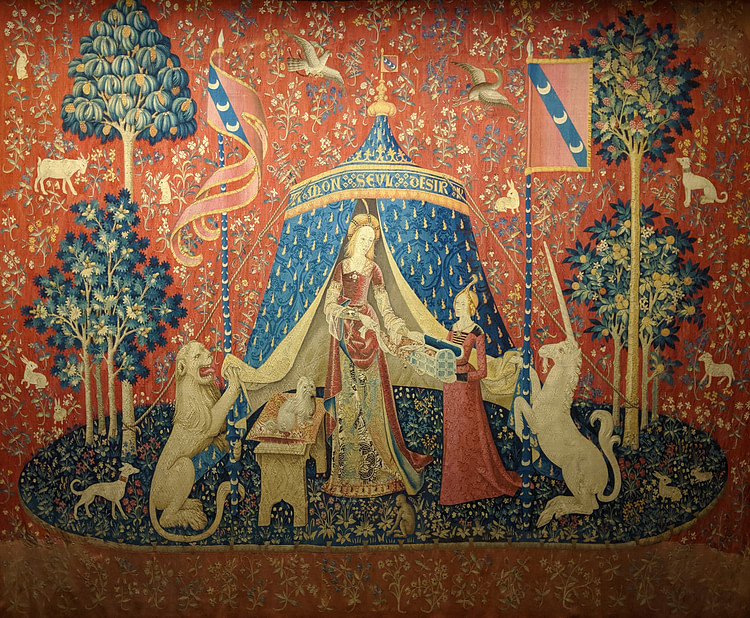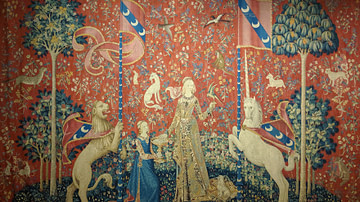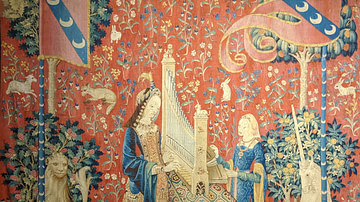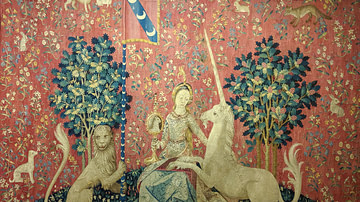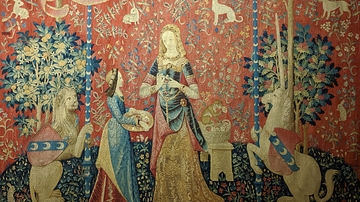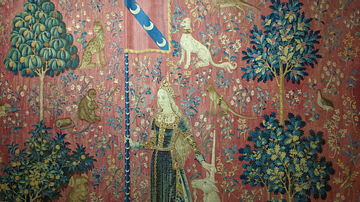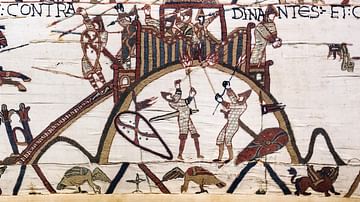Illustration
The Lady and the Unicorn are six tapestries depicting a medieval lady in various poses. Each scene depicts one of the five senses; the sixth scene is labelled À Mon Seul Désir ("to my only desire") whose meaning is unclear. Historians attribute the tapestries to be commissioned by the Le Viste family due to the coat of arms prominently placed on the tapestries.
The tapestries were made at the crossroads between the Middle Ages and the Renaissance, around 1500, most likely by a Parisian artist who also created the Christian devotional book Très Petites Heures of Anne of Brittany. They were probably woven in Flanders.
Wool and Silk. Musée de Cluny, Paris, France. Cl. 10831-10836.
About the Author
Photo Location
This photograph was taken at the following location:
Cite This Work
APA Style
Crabben, J. v. d. (2019, August 21). The Lady and the Unicorn: À Mon Seul Désir. World History Encyclopedia. Retrieved from https://www.worldhistory.org/image/11080/the-lady-and-the-unicorn-a-mon-seul-desir/
Chicago Style
Crabben, Jan van der. "The Lady and the Unicorn: À Mon Seul Désir." World History Encyclopedia. Last modified August 21, 2019. https://www.worldhistory.org/image/11080/the-lady-and-the-unicorn-a-mon-seul-desir/.
MLA Style
Crabben, Jan van der. "The Lady and the Unicorn: À Mon Seul Désir." World History Encyclopedia. World History Encyclopedia, 21 Aug 2019. Web. 20 Apr 2024.
